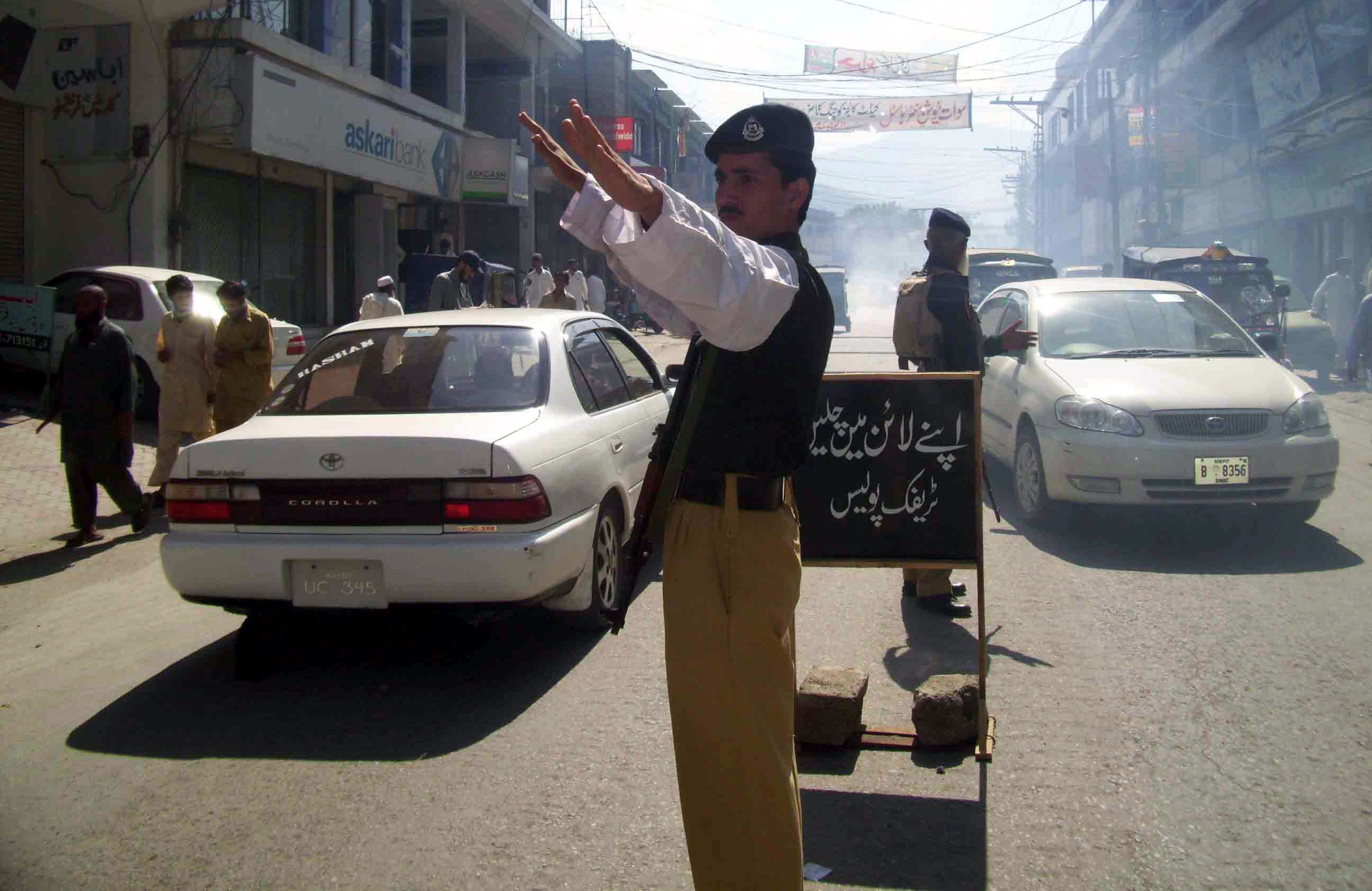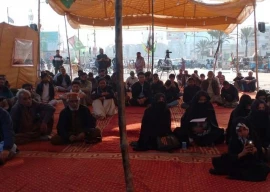
The Supreme Court has issued a stay order preventing two one-way roads in Defence Housing Authority (DHA) from being reverted back to dual carriage roads.
In December 2011, DHA had converted two roads - Khayaban-e-Mujahid and Khayaban-e-Shamsheer - to one-way streets to “ease traffic woes” and reduce environmental and noise pollution in the upscale neighbourhood. But some of the residents were not pleased with the move and at least a hundred of them took the matter to the Sindh High Court in April 2012.
They argued that the authority had gone through with the conversion without making changes to the master plan, according to which the two thoroughfares are supposed to be two-way streets.
The petitioners had also alleged that DHA’s governing board had flouted laws by ordering the conversion of the roads without receiving a green light from the body’s executive board.
The fuming residents also claimed that the move had led to the perpetual violation of environmental laws and the fundamental rights of the residents, who had to deal with the constant spluttering of public vehicles and the thick blanket of smoke that they leave in their wake.
Taking all of this into account, the high court’s division bench had ordered DHA to revert the two thoroughfares back into two-way roads. But the high court had said that if the conversion of the roads into one-way streets is in the public’s interest, then changes should be made to the master plan. Unhappy with the decision, DHA promptly headed to the apex court to move an application against the verdict. The authority’s lawyer, Abid Zubedi, said that Karachi’s DHA was one of the largest neighbourhoods in the country as it had been expanded from 76 acres to a whopping 8,850 acres. He added that the area now has 37,000 residential and 10,000 commercial plots. He argued that the volume of traffic in the neighbourhood had spiked as the road network in the area had exceeded 446 kilometres following the execution of major development projects in the Phase VI, VII and VIII.
The lawyer said DHA had approached a consultancy, National Engineering Services Pakistan (NESPAK), looking for ways that traffic bottlenecks on Khayaban-e-Shamsheer and Khayaban-e-Mujahid could be prevented. When the consultancy recommended that the two thoroughfares be converted into one-way roads, this was done after the governing board’s approval in December 2011.
“The houses which line the streets are as far away from them as are those in many other roads,” he contended. “Besides, the majority of the vehicles plying on the two roads run on compressed natural gas, so there is no question of emission or absorption of diesel fumes.”
Zubedi claimed that the high court had failed to consider the important fact that the roads had been converted in the larger interest of the public. He pleaded the apex court to grant leave to appeal against the SHC verdict.
The three-member bench, headed by Justice Anwar Zaheer Jamali, then questioned the lawyer whether the movement of commercial traffic on the thoroughfares might violate the rights of the residents living in houses along the roads.
Zubedi assured that if legally it is found that the authority was liable to comply with the directions contained in the high court’s judgement, they will be willing to comply. But he asked the apex court for a stay order against the conversion for the time being as it was detrimental to public interest. After the initial hearing, the bench suspended the implementation of the high court’s order to revert the two thoroughfares back to two-way roads. The hearing was then adjourned to the next session.
Published in The Express Tribune, March 3rd, 2013.
COMMENTS (1)
Comments are moderated and generally will be posted if they are on-topic and not abusive.
For more information, please see our Comments FAQ














1733421998-0/New-Project-(1)1733421998-0-270x192.webp)








Abid Zuberi**